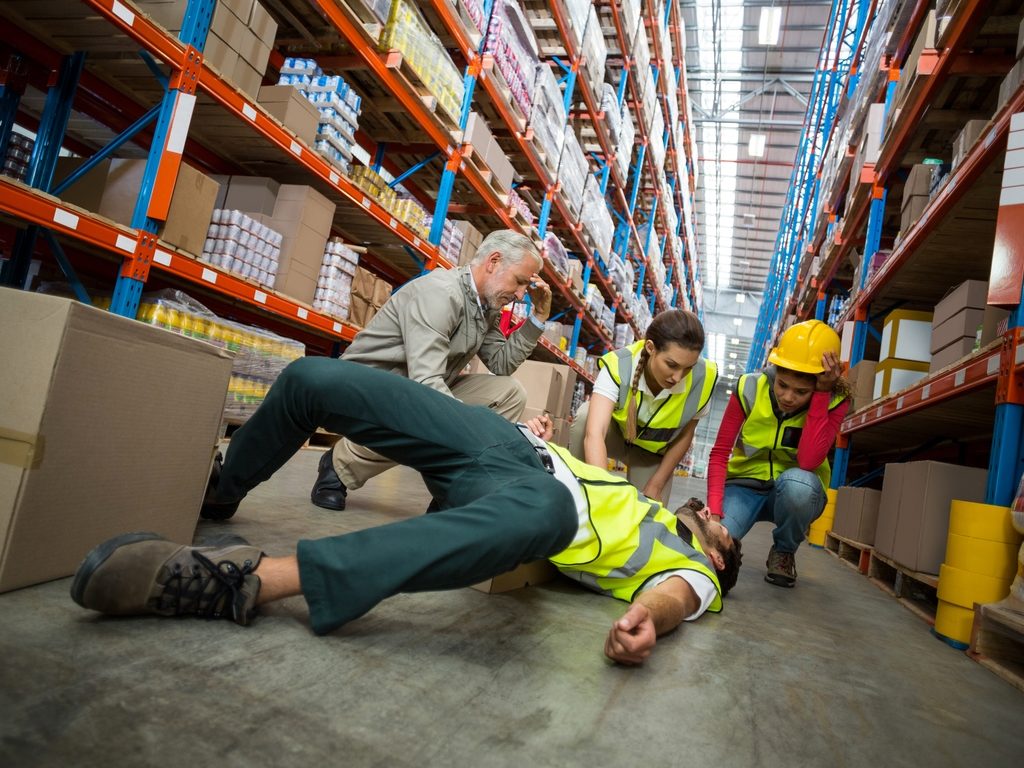Data released by the U.S. Bureau of Labor Statistics (BLS) showed that over 4,679 workers died on the job in 2014, nearly 100 more than in 2013. The Occupational Safety and Health Administration (OSHA) also reported that thousands more lost their lives in 2015. According to the information gathered, the causes of death ranged from slip and falls to vehicle accidents.
When a worker dies on the job, their families can file workplace fatality claims to seek benefits to cover their losses. The compensation usually covers damages such as funeral costs and loss of support.
Have you suffered a work injury or do you have questions about workers’ compensation? Contact an expert Hudson County Personal Injury Attorney to discuss your concerns.
Workplace Fatalities and Compensation Claims
The New Jersey Workers’ Compensation Law states that the surviving dependents of a deceased worker are entitled to 70% of the worker’s wages and up to $3,500 in funeral expenses, to be paid by the deceased’s employer. Dependents, as defined under this law, include surviving children and spouses who lived with the worker, but other family members may prove dependency.
If one is proven to be a dependent of the deceased, they can file a claim for workers’ compensation benefits or a wrongful death lawsuit. According to the BLS, this can be done for cases involving some of the top causes of fatal workplace accidents, such as:
- Slips and falls
- Work-related fires and explosions
- Machinery accidents
- Vehicle collisions occurring during work hours
- Exposure to toxic substances
- Sea or air travel accidents while on the job or traveling on business
Employer Responsibilities Following a Job-Related Fatality
Employers have the responsibility to provide a safe workplace for their employees. They are also required to have a workplace fatality plan prepared for dealing with job-related deaths. Typically, the plan should include clear directions for the following actions:
Immediately After the Accident
- Contacting medical responders
- Creating an investigative file
- Notifying OSHA of the accident
- Removing any hazardous elements that could be considered an immediate danger
- Securing the accident area for investigation
Notifying Involved Parties
- Contacting a third-party expert to inspect any equipment connected to the death
- Notifying the equipment’s manufacturer within 14 days
- Contacting workers’ compensation carriers and insurance companies
- Preparing managers and employees for investigation, including informing them of their legal rights
- Assigning a mature and sensitive employee to notify the deceased’s family in person
Informing OSHA
OSHA has the mandate to sanction companies for health and safety violations or negligence, with fines sometimes totaling $129,336. Immediately after a fatal accident:
- Notify OSHA
- Develop a specific path to lead officials to the accident site, with minimal exposure to the rest of the facility.
Talk to a Hudson County Personal Injury Attorney
Although the law allows for deceased workers’ dependents to receive compensation for their loss, insurance companies will rarely pay without a fight. They will, instead, use every reason and excuse in the book to reduce or deny your claim, which is why you need legal representation.
Anthony Carbone, a passionate Hudson County Personal Injury Attorney, has been protecting workers’ rights in New Jersey for over three decades. If you have lost a loved one to a workplace fatality, contact the Law Offices of Anthony Carbone at 201-829-3805 today to discuss your case.
